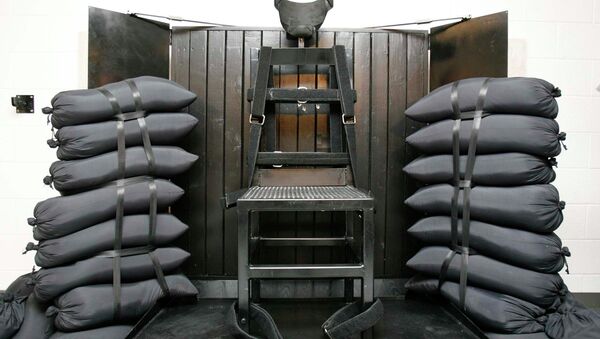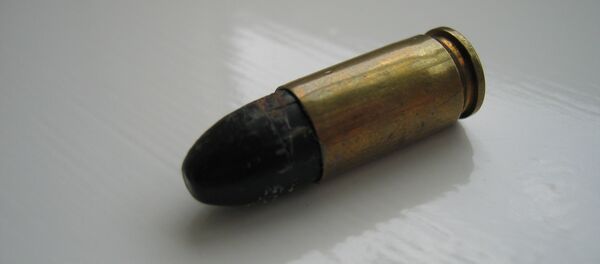Utah Governor Gary Herbert (R) signed the bill Monday, which was drafted as a response to several botched executions using new drug cocktails.
After European manufacturers from countries that oppose the death penalty started refusing to produce and export the drugs to the US, states started using new, relatively untested combinations which resulted in prolonged, apparently agonizing executions.
In particular, the execution of Clayton Lockett in Oklahoma in April 2014 sparked nation-wide concern when it took him 43 minutes to die. Witnesses reported that he was moving, groaning, and trying to rise during the process.
As a result, several states have started to search for alternative methods of administering capital punishment. Oklahoma, for example, is looking into executing inmates by suffocating them with nitrogen inhalation.
Republican Rep. Paul Ray of Clearfield, who sponsored the bill, championed the firing squad as a more humane form of execution.
"We would love to get the lethal injection worked out so we can continue with that. But if not, now we have a backup plan," he told the Associated Press.
Utah Sen. Orrin Hatch (R) previously commented that he was becoming “increasingly more concerned about capital punishment [and] if we can solve the problem of how it can be done without incident, without difficulty.”
Others see the practice as a cruel, inhumane practice.
"I think Utah took a giant step backward," Ralph Dellapiana, director of Utahns for Alternatives to the Death Penalty, told Fox News, calling the firing squads "a relic of a more barbaric past."
Some also thinks the practice would tarnish the reputation of the state itself.
“As a defense attorney, I think that execution by firing squad is cruel and unusual. But as a citizen of Utah, I find it barbaric and embarrassing,” Salt Lake City Human Rights Commission member Christopher Wharton told Sputnik when lawmakers first passed the bill.
Meanwhile, opposition to any form of capital punishment has grown in recent years, in part, due to concerns about executing the innocent, as several high profile cases have exonerated long-time death row inmates.
On the same day the bill was signed, news broke of an Arizona woman, Debra Jean Milke, who's conviction for the murder of her son was tossed out after she spent 22 years on death row.
— DeathPenaltyInfoCtr (@DPInfoCtr) March 23, 2015
Utah currently has nine male inmates on death row, but does not expect to schedule another execution for several years.




